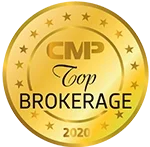Navigating the world of commercial mortgages can be daunting, especially for newcomers to Canada. Whether you’re looking to invest in a property for your business or considering options for commercial real estate, understanding the fundamentals of commercial mortgages is essential.
In this comprehensive guide, we’ll break down everything you need to know, from the types of commercial properties available to the lending criteria and financing options. Let’s dive in!
Commercial Property Types: Finding the Right Fit for Your Business
When it comes to commercial properties, the options are vast and diverse. Knowing the various options is the first thing to do to find what works best for your business. Here’s a closer look at some common commercial property types:
- Retail Spaces: These are ideal for businesses aiming to establish a physical storefront presence, allowing them to engage directly with customers.
- Office Buildings: Suited for professional services and corporate offices, these properties provide a conducive environment for conducting business operations.
- Industrial Properties: Tailored for manufacturing, warehousing, or distribution purposes, these spaces are equipped to handle heavy machinery and large-scale production.
- Mixed-Use Properties: Combining residential and commercial spaces, these properties offer versatility and can cater to a diverse range of businesses and tenants.
- Special Purpose Properties: Designed for specific industries such as healthcare facilities, hotels, or educational institutions, these properties are customized to meet unique requirements.
Determining the right property type for your business involves considering various factors such as location, industry regulations, accessibility, and space requirements.
Lending Criteria for Commercial Mortgages
Securing a commercial mortgage involves meeting specific criteria set by lenders to assess your eligibility and creditworthiness. Here are the important things that lenders usually think about:
- Creditworthiness: Lenders check your credit history and score to see if you can pay back the loan on time.
- Property Evaluation: The value and condition of the commercial property play a crucial role in determining the loan amount and terms.
- Income Stability: Lenders look for evidence of steady cash flow and financial stability to ensure that you can meet your loan obligations.
- Down Payment: Commercial mortgages usually require a higher down payment compared to residential mortgages, reflecting the higher risk associated with commercial properties.
Understanding these criteria is essential as they can significantly impact your loan application process and approval chances.
Financing Options for Commercial Mortgages
Several financing options are available to prospective borrowers seeking commercial mortgages. Each option comes with its own set of terms, rates, and eligibility criteria. Here’s an overview of the most common financing options:
- Traditional Bank Loans: Offered by banks and financial institutions, these loans typically feature competitive rates but may have stringent eligibility requirements.
- SBA Loans: Backed by the Small Business Administration, these loans provide favorable terms and support for qualifying businesses, making them an attractive option for many borrowers.
- Private Lenders: Alternative lenders may offer more flexibility in terms of eligibility and requirements but often come with higher interest rates to offset the increased risk.
- Commercial Mortgage Brokers: These professionals play a crucial role in connecting borrowers with lenders, leveraging their market expertise and negotiation skills to secure favorable terms on behalf of their clients.
Exploring and comparing different financing options is essential to find the best fit for your business needs and financial situation.
The Role of Commercial Mortgage Brokers
Commercial mortgage brokers serve as valuable intermediaries in the loan process, offering expertise, guidance, and support to borrowers. Here’s how they can help:
- Market Expertise: Brokers possess in-depth knowledge of the commercial real estate market, enabling them to identify suitable properties that align with your business goals and requirements.
- Lender Connections: With established relationships with various lenders, brokers can provide access to a wide range of financing options, including those that may not be readily available to individual borrowers.
- Negotiation Skills: Brokers leverage their negotiation skills and industry insights to advocate for favorable terms and rates on your behalf, ensuring that you get the most competitive deal possible.
- Streamlined Process: By handling paperwork, documentation, and communication with lenders, brokers streamline the loan process, saving you time, effort, and potential headaches along the way.
Partnering with a reputable and experienced mortgage broker for commercial mortgages in Brampton can significantly improve your loan experience, providing personalized guidance and support from start to finish.
Conclusion
At first, figuring out commercial mortgages as a newcomer to Canada might seem scary, but with the right information and help, you can make smart choices to advance your business. Understanding the various types of commercial properties, the lending criteria set by lenders, the financing options available, and the role of commercial mortgage brokers is essential in securing the right loan for your business needs.
If you’re ready to explore commercial mortgage options in Brampton or the surrounding areas, Akal Mortgages would be great. With our expertise, dedication, and personalized service, we can help you navigate the complexities of commercial real estate financing and find the best solution tailored to your specific needs and goals. Schedule your appointment today or call us at 416-621-1300 and take the first step towards realizing your commercial property aspirations!




